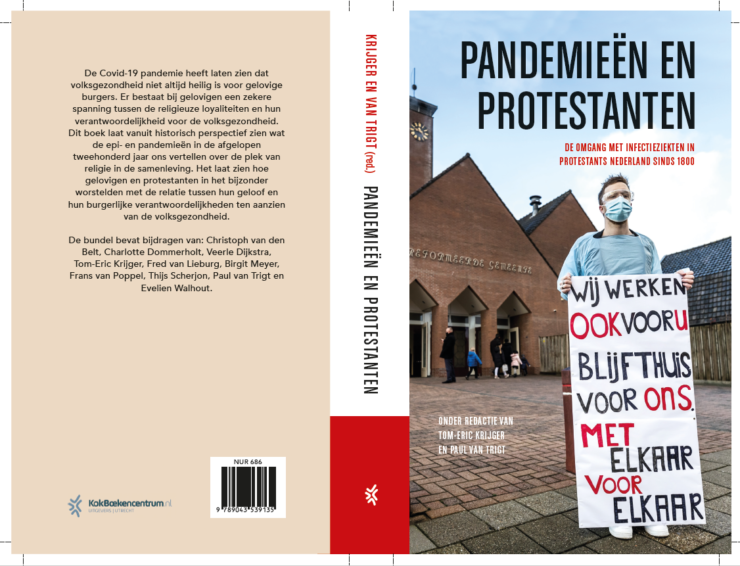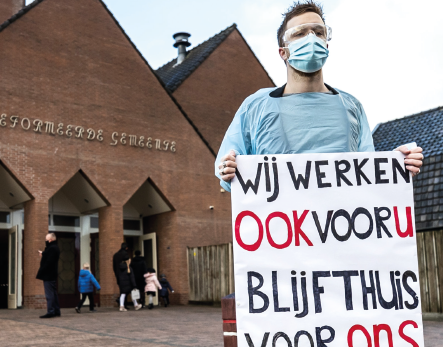The COVID-19 pandemic has shown that public health is not always the holy grail for religious citizens, as religious freedom is not always the holy grail for non-religious citizens and the government. This edition of the Yearbook for the History of Dutch Protestantism since 1800 investigates what epi- and pandemics of the past two hundred years tell us about the changing place of religion in society. It shows how and why Dutch Protestants have struggled with the relationship between their religious and civic responsibilities towards public health.
The volume Pandemieën en Protestanten includes essays by Christoph van den Belt, Charlotte Dommerholt, Veerle Dijkstra, Tom-Eric Krijger (editor), Fred van Lieburg, Birgit Meyer (afterword), Frans van Poppel, Thijs Scherjon, Paul van Trigt (editor) en Evelien Walhout. These authors discuss discusses several dimensions of the societal place of religion, based on the study of debates about public prayer, vaccination, the Holy Supper, mortality rates, on the investigation of personal experiences based on ego-documents and interviews, and on case studies about local communities and a national religious newspaper. From these inquires arises a complex picture of the diverse ways in which different actors have given shape to their responsibility regarding health; a picture that could be further diversified by addressing the early modern period, other religions, and trans- and international dimensions.


